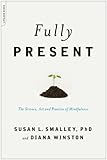Use Mindfulness to Reduce Everyday Stress
Article by Stephen Lau
Mindfulness is healing for not only physical illness, chronic pain, but also anxiety and everyday stress.
Contemporary living is hectic and stressful. This is mainly because we focus too much on the "self." In our lives, everything seems to evolve around the "self": the errands we have to run, the goals we have to achieve, and the deadlines we have to meet. Such demands have evolved into our everyday stress.
Because we focus too much on the "self," we have become oblivious to the needs of others: in other words, we lack mindfulness. In addition, due to our ingrained "mine-is-better" attitude, we often create conflicts in our everyday encounters with people. This is another major source of everyday stress.
How does mindfulness reduce everyday stress?
Researchers have found that mindfulness - in particular, mindfulness meditation - promotes a state of relaxation through changing the brain chemistry. Thus, mindfulness can heal depression. In addition, research has indicated that mindfulness can enhance the immune system, and thus vindicating the healing power of mindfulness.
What exactly is mindfulness?
Mindfulness is a deliberate act of focusing the mind on the present moment.
Many of us are living in the past, the present, and the future simultaneously. The past affects our present as well as the future. To illustrate, an unpleasant past experience, such as a bad financial decision or investment, may play a pivotal role in our decision in the present by creating a setting for anxiety and worry, and accordingly with profound implications on the future.
Mindfulness brings our minds to what is happening at this very present moment, to the exclusion of everything else in the past or in the future. It is this "concentrated" relaxation through mindfulness that we can reduce, if not eradicate, everyday stress.
As mentioned above, we are living in a high-wired society in which multitasks are performed concurrently. A simple illustration is a driver tal! king on the cell phone, listening to the radio, while driving. We are on a fast lane, which is full of distractions and interruptions. Mindfulness is an inconspicuous sign on that fast lane, and it is small wonder that many of us miss that sign. As a result, we often take a turn into the lane leading to stress and distress.
In life, at the ordinary moment of the present, we often miss what is extraordinary at that moment. This "extraordinary" experience, such as rich sensory experiences that touch the nethermost of our souls, is felt only through mindfulness. How often do we eat while we watch a football game. Our focus is on the game, not really on the taste of the food. Mindfulness is savoring the food we eat, pondering on how it affects our senses as well as our health. Mindfulness is focusing on the ordinary that we often take for granted.
Lao Tzu, the great ancient Chinese philosopher, once said: "To the mind that is still, the whole universe surrenders." Because of all the hustle and bustle around us, we do not experience that "stillness" that Lao Tzu described. For this reason, we tend to feel that the whole world is against us. What we really need is self-reflection and depth of understanding of what we are doing at the present moment. Let mindfulness reduce your everyday stress in a stressful world.
About the AuthorStephen Lau is a writer and researcher. He has published several books and many websites on health, healing, depression, eating disorders, and golf. For more information on emotional and mental wellness, and also get your FREE copy of the 143-page e-book "All-Round Weight Loss" by Stephen Lau, go to: http://www.stephenlau.name/ei.html
Q&A - Thich Nhat Hanh - What is the source of mindfulness?

Fully Present: The Science, Art, and Practice of Mindfulness

List Price: $ 16.95 Price: $ 16.95


Comments
Post a Comment